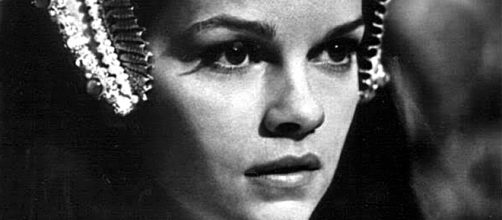Declaring – "my [daughter] shall be queen!" Perhaps the statement is similar to saying "we shall be free!" In Anne Of The Thousand Days released in 1969; written by Bridget Boland, John Hale, Richard Sokolove; and starring Richard Burton, Genevieve Bujold, and Irene Papas, we see that in Anne’s refusal to cooperate with King Henry Vlll’s plan to invalidate their marriage, that she was in essence, sacrificing her very life so that her daughter Elizabeth could one day rule as queen.
Though the implications may have long been apparent to many with clearer Machiavellian faculties; in consideration of Anne Boleyn’s modern historical status, it seems, however, that her bravery is more than likely underappreciated, since the general attitude about her is at best, more akin to pity; “a victim of fortune and pride,” (Histoire de Anne Boleyn jadis royne d'Angleterre, 1535-6).
The other Boleyn girl
As a result of the portrayal of Anne Boleyn in most films, many of them based on literary-fictional and historical accounts, an audience is likely to come away from the story thinking that Anne Boleyn was one of those girls ‘caught in the storm.’ A female of the nobility [VIDEO] who used her wits and powers of seduction to become the queen of England; that she survived for a short time under the tyranny of a murderously ambitious King; that she was an upstart not docile enough for the King’s liking. We watch re-enactments of Anne’s birthing of “deformed” offspring, the accusations of witchcraft, her possible fornication (confessed by her alleged lovers under torture), her initial refusal to become impregnated (by her sister's ex-boyfriend), and while accusations of incest with her brother are sometimes explained - (she needed a male child ASAP).
On the other hand, in real life, we might read the academics who speculate that: she may have made a joke about marrying a man named Norris if the King ever died- (treasonous [VIDEO]); that her “shapeless mass of flesh” (Chapuys- Imperial ambassador to England 1529-45) was in actuality a child short of term at 3 ½ months, that there may have been a conservative movement against her in the interest of Queen Mary; some extensive gossiping on the part of the Queen, and a snub or two.
Still, "Anne of the Thousand Days" does something slightly different, and for the many people who have already seen this film (about 49 years ago), there isn’t much discussion about how it reflects a point of view about Anne Boleyn that is not often replicated in the other numerous retellings the way some of these other views of her are: a man-catcher, a status seeker, dutiful daughter; and always, of course, a victim.
The result of Anne's speedy two-day trial
Just imagine it! She is dead! Literally dead! Women are worthless to the King! They make male babies. End of story! In dying to protect Elizabeth’s birthright, it is possible that Anne may not have realized how truly powerful Elizabeth would become and that in the future, Elizabeth manages to avoid marriage during her entire reign (can you blame her?). How effectively and intelligently she would rule, guiding England into what came to be known as The Golden Age, and throughout her entire lifetime, all the while avoiding subjugation to (what would most likely have been) a foreign king.
Anne’s sacrifice is what made it possible for her daughter to make whatever she could of the situation.
In any case, it was going to be a long shot, and how far! In most fictional accounts, Anne is given a choice and she refuses to, ‘prevent Elizabeth from becoming a bastard.’ This slightest bent to an often repeated story points her legacy squarely in the direction of Female Empowerment. The doomed Anne's declaration at the end of "Anne of the Thousand Days," that her daughter would one day ascend to queen was an incredibly moving moment. Most other films just didn’t give it the oomph! it needs.


